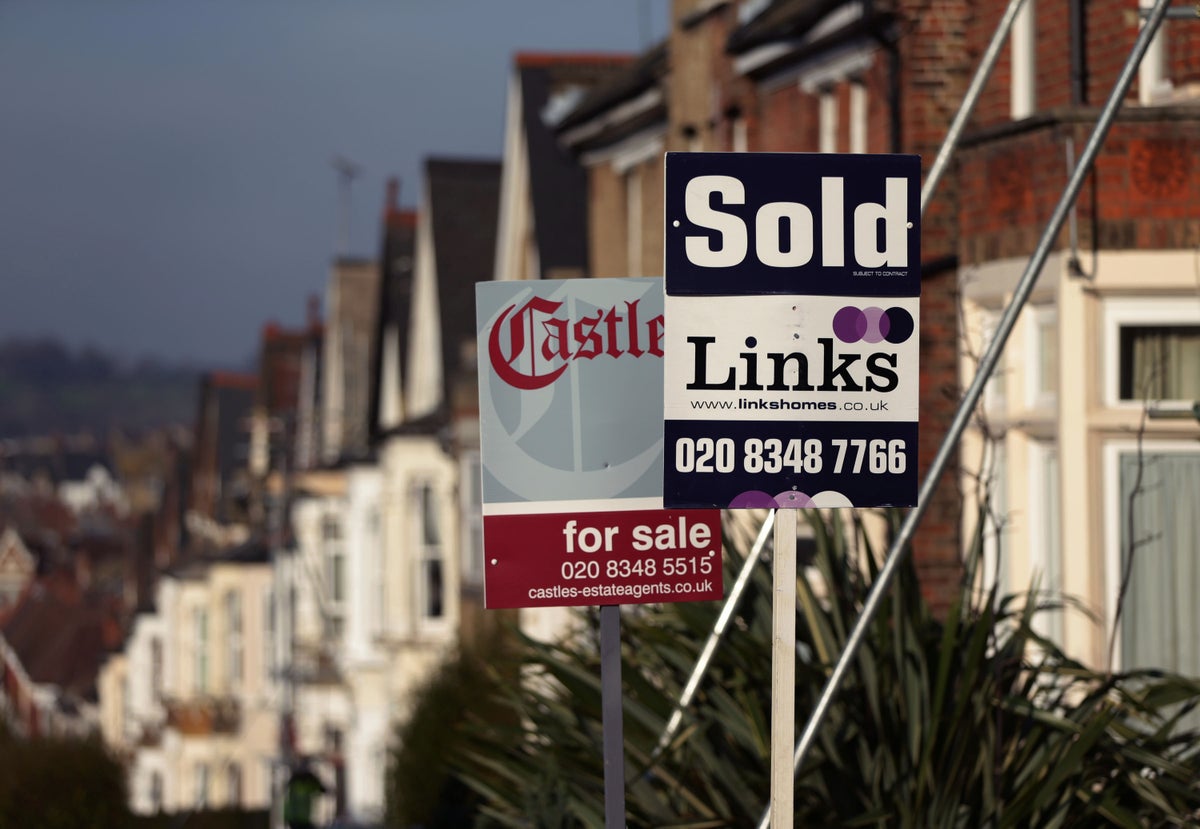
British homeowners have been warned that they are facing a mortgage “timebomb”, with interest payments set to double to their highest level on record next year.
In a stark forecast published alongside chancellor Jeremy Hunt’s tax-raising fiscal statement, the Office for Budget Responsibility (OBR) predicted that mortgage interest payments will rise by more than 100 per cent in the year to September 2023.
According to the Liberal Democrats, this would represent the largest rise since records began – far outstripping the previous record rise of 63 per cent rise in 1989, when the cost of buying a home was also much lower relative to wages.
The “crippling” increase could pose an even worse threat to homeowners than the financial crisis in 2008, with thousands of families at risk of losing their home, the Lib Dems warned.
In the 12 months to September, a typical household with an outstanding mortgage of £236,000 will see their annual interest payments double to £5,689 – an increase of £2,851 a year, or £237.60 each month, according to the party’s analysis of the OBR forecast.
“Homeowners are paying the price for the Conservative government crashing the economy,” said Lib Dem Treasury spokesperson Sarah Olney.
“The mortgage ticking timebomb has only seconds left. The coming months will see mortgage payments implode, leaving families paying hundreds of pounds more a month This is simply unmanageable with the tax rises announced by the chancellor.
“This was the ‘cost of chaos’ Budget where everyone pays the price. It is becoming clearer by the day that families who own a home will pay the ultimate price for months of chaos.
“Something has to give. The government needs to clean up their mess and save families who face losing their home. They need to scrap the tax cuts for the banks and introduce an emergency mortgage protection fund.”
The analysis cites public data on mortgage interest payments from the Office for National Statistics’s (ONS) retail prices index (RPI), dating as far back as January 1988. While the ONS told The Independent that such figures were first compiled in 1975, it was unable to immediately provide the older data.
Mortgage interest rates are calculated in line with the Bank of England base rate, which the central bank’s monetary policy committee has opted to hike to 3 per cent – its highest level since 2008 – in a bid to ease inflation.
Mortgage lenders also pulled hundreds of deals and reintroduced them with higher interest rates after Liz Truss and Kwasi Kwarteng’s mini-Budget spooked investors and sparked turmoil in government bond markets – further pushing up the cost of borrowing.
Announcing the latest of eight consecutive base rate rises earlier this month, Bank of England governor Andrew Bailey suggested that lenders should temper their expectations for future rises, saying: “We think the bank rate will have to go up by less than is currently priced in by financial markets.”
As a result, “the rates on new fixed-term mortgages should not need to rise as they have done”, Mr Bailey said.







